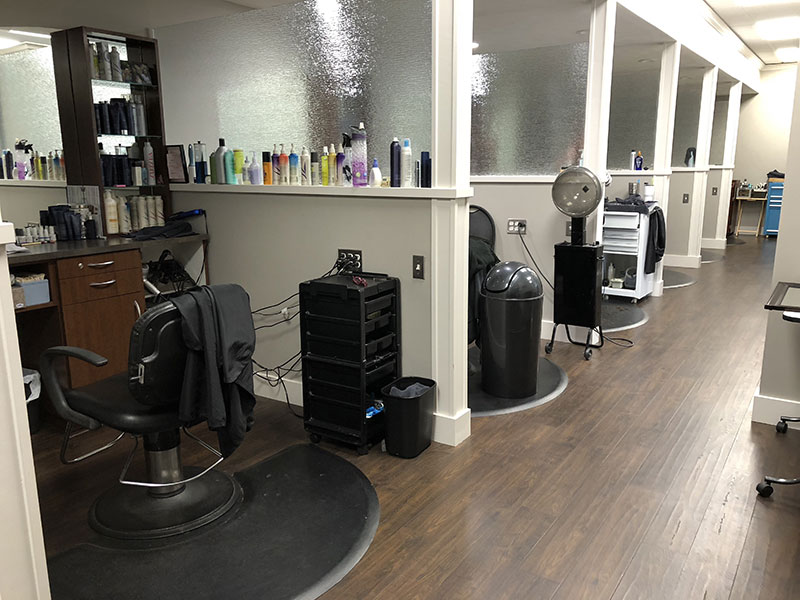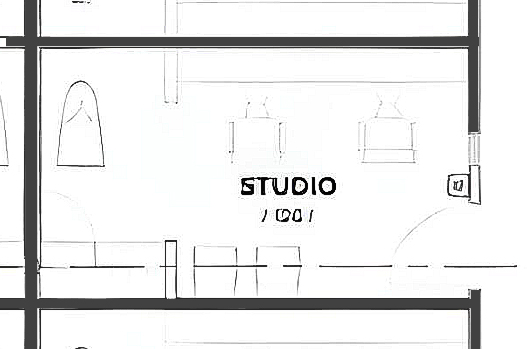Strategic Choices: Evaluating the Advantage of Renting Out Versus Having a Beauty Parlor Area to Optimize Long-Term Success and Financial Stability
When it pertains to establishing a beauty salon company, among the important decisions that proprietors need to thoroughly take into consideration is whether to lease or own the space in which they run. The choice in between leasing and possessing a beauty parlor space can have a substantial impact on the long-term success and economic health of the organization. Elements such as functional flexibility, monetary effects, and investment prospective play a vital role in this calculated decision-making procedure. By exploring the benefits and drawbacks of each choice, hair salon owners can make educated selections that align with their service objectives and goals.

Advantages And Disadvantages of Renting
When considering the choice in between leasing a beauty salon room or having one, it is important to consider the pros and cons of renting out to make an educated selection. One primary benefit of leasing a hair salon space is the adaptability it offers. Leasing permits hair salon owners to test different areas or upscale their service without the commitment of a long-lasting home mortgage. Additionally, renting typically includes less upfront expenses, making it an extra accessible choice for brand-new salon owners or those with budget restraints.

Financial Elements to Think About

Thinking about the financial effects of renting out a beauty salon space versus possessing one is necessary for making a well-informed business choice. When examining the financial variables, it is important to assess the preliminary expenses connected with each option. Renting out a beauty parlor space commonly needs a security down payment and monthly rental fee payments, whereas having involves a down repayment, mortgage repayments, real estate tax, and maintenance costs.
In addition, the long-lasting economic implications differ in between renting and possessing. Renting offers adaptability but may lead to greater cumulative expenses gradually as a result of rental increases. On the other hand, having a hair salon space provides possible equity development and the opportunity to build possessions. It is very important to perform a cost-benefit analysis to figure out which alternative straightens best with your financial goals and service method.
Renting may provide reduced in advance costs, allowing you to assign even more resources to advertising and marketing and service growth. Reviewing these monetary factors thoroughly will help you make a calculated decision that enhances your salon's long-lasting success and economic stability.
Operational Adaptability and Control
Optimal functional effectiveness plays a vital role in figuring out the equilibrium between flexibility and control when making a decision in between leasing and owning a hair salon space. Leasing a beauty parlor space provides intrinsic flexibility as it permits less complicated adjustments to changing market conditions, client choices, or organization needs. This versatility is especially valuable for new beauty parlor proprietors or those aiming to test different locations before committing long-term. Additionally, leasing supplies the benefit of not being linked down to a specific building, making it possible for easier moving if necessary.
On the other hand, owning a salon room supplies a greater feeling of control look at more info over the building and its procedures. Owners have the liberty to personalize the space to their taste, execute long-term strategies without the threat of lease terminations, and possibly build equity with time. Ownership additionally comes with responsibilities such as building maintenance, insurance coverage, and home tax obligations, which can impact the general economic commitment.
Eventually, the choice in between renting and having need to consider the preferred degree of operational versatility and control that straightens with the salon's long-lasting objectives and vision.
Financial Investment Potential in Ownership
Provided the functional considerations discussed earlier, exploring the financial investment possibility in hair salon possession clarifies the monetary ramifications and long-term benefits that feature owning a salon room. Hair salon possession provides a distinct opportunity for entrepreneurs to construct equity and possessions in time. By investing in a hair salon room, owners have the potential to profit from residential property recognition, which can work as a beneficial possession in the future. In addition, having a beauty salon gives stability in regards to fixed mortgage repayments, providing predictability in economic planning contrasted to varying rental prices.
Moreover, possession enables higher control over the room, making it possible for owners to personalize and customize the hair salon to their specific brand and vision without the restrictions usually imposed by proprietors. This level of control can enhance the general client experience and brand name identification, possibly leading to enhanced customer retention and organization development.
In regards to investment capacity, having a beauty parlor space can also open up opportunities for extra earnings streams, such as renting extra space to various other charm experts or incorporating retail sales within the salon. Hair salon suites. These varied earnings sources can add to the general financial health and sustainability of business
Long-Term Stability and Development
With an emphasis on sustainability and growth in time, establishing long-term security and promoting growth are pivotal elements of hair salon ownership. To ensure long-term security, beauty salon owners must meticulously take into consideration aspects such as location, market patterns, and monetary planning. Picking in between renting and having a beauty parlor area plays a considerable duty in identifying the service's development possibility.
Leasing a beauty parlor area supplies adaptability and reduced first prices, permitting proprietors to allot resources towards enhancing services and marketing initiatives. By possessing the room, hair salon proprietors have even more control over personalizing the residential property to fit their brand and can benefit from long-lasting possession growth.
Eventually, the decision in between renting out and having a salon area ought to align with the proprietor's lasting organization objectives and monetary objectives. Whether focusing on versatility or equity building, a strategic strategy to property possession can substantially impact the salon's security visite site and development trajectory.
Final Thought
In conclusion, the choice between renting out and having a salon area requires hairdressers in near me a mindful evaluation of financial aspects, operational adaptability, financial investment potential, and long-lasting stability. Both choices come with their own set of advantages and disadvantages, and it is crucial for beauty salon proprietors to weigh these aspects to enhance long-term success and monetary viability. Salon suites. Eventually, the selection between leasing and possessing should be based on a thorough analysis of specific business goals and conditions